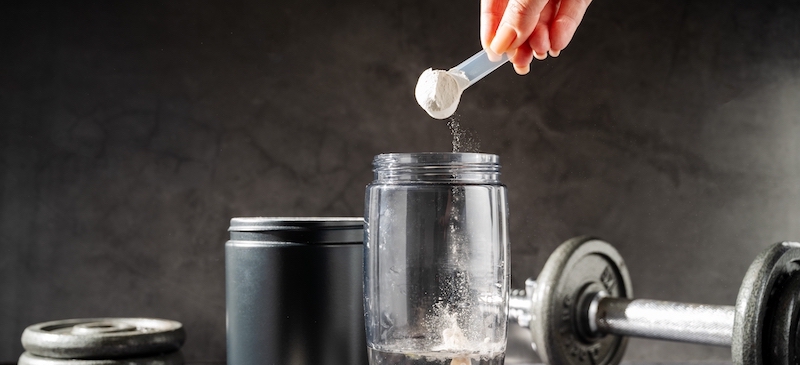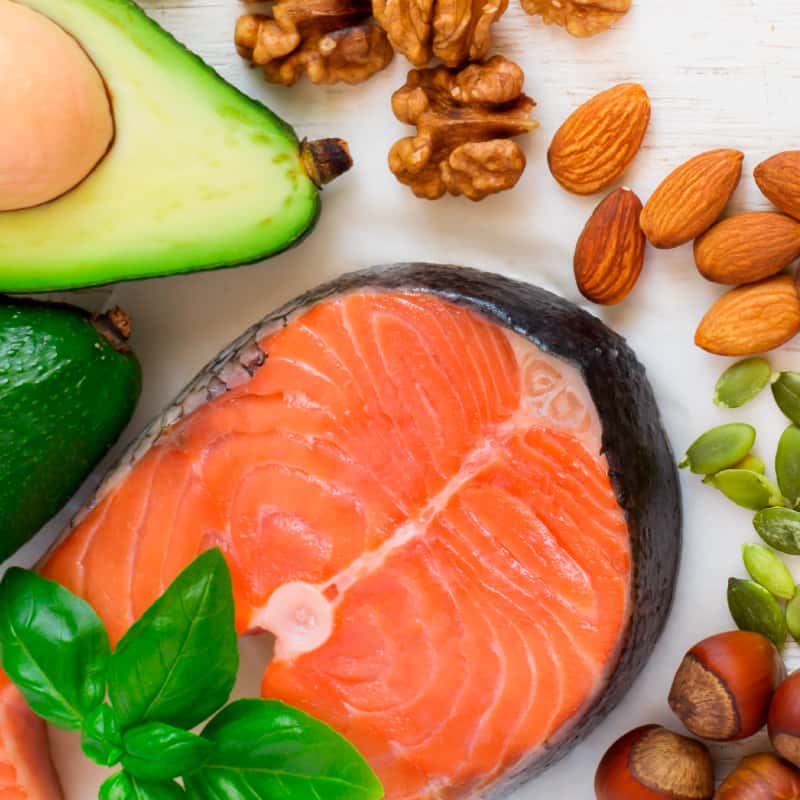This Dr. Axe content is medically reviewed or fact checked to ensure factually accurate information.
With strict editorial sourcing guidelines, we only link to academic research institutions, reputable media sites and, when research is available, medically peer-reviewed studies. Note that the numbers in parentheses (1, 2, etc.) are clickable links to these studies.
The information in our articles is NOT intended to replace a one-on-one relationship with a qualified health care professional and is not intended as medical advice.
This article is based on scientific evidence, written by experts and fact checked by our trained editorial staff. Note that the numbers in parentheses (1, 2, etc.) are clickable links to medically peer-reviewed studies.
Our team includes licensed nutritionists and dietitians, certified health education specialists, as well as certified strength and conditioning specialists, personal trainers and corrective exercise specialists. Our team aims to be not only thorough with its research, but also objective and unbiased.
The information in our articles is NOT intended to replace a one-on-one relationship with a qualified health care professional and is not intended as medical advice.
When Is the Best Time to Take Creatine?
September 19, 2025

Creatine, particularly creatine monohydrate, is one of the most researched and widely used supplements for fitness and athletic performance, and for good reason. Whether your goal is to build lean muscle, improve recovery or boost power output, creatine can help, but one of the most common questions people ask is: “When is the best time to take creatine?”
Some say you should take it before a workout, others claim after a workout is better and some say timing doesn’t matter as much as daily consistency. So which is right?
Let’s break it all down so you know exactly when to take creatine, how to take it for optimal results and how to use it safely.
When is the best time to take creatine: before or after exercise?
Research suggests that taking creatine either before or after exercise can work, but there may be a slight edge to taking it post-workout. A few studies have found that consuming creatine after resistance training may lead to greater gains in strength and muscle mass compared to pre-workout use.
A randomized, clinical trial published in 2013, for example, compared taking five grams of creatine immediately before versus immediately after resistance training sessions in recreational male bodybuilders. After four weeks, the post-workout group showed greater improvements in fat-free mass and strength than the pre-workout group.
Here’s why: After a workout, your muscles are primed to absorb nutrients and replenish glycogen. Pairing creatine with a post-workout meal (especially one with carbohydrates and protein) may enhance its uptake into muscle tissue.
That said, if taking it before exercise is easier for you (perhaps mixed with your pre-workout drink) you’ll still experience benefits. The key is daily consistency.
For instance, a meta-analysis from 2022 confirmed that creatine combined with resistance training boosts strength and muscle mass versus training alone, but timing (before vs. after) may have a modest effect. Post-exercise may offer a slight advantage for fat-free (lean) mass gains.
Another recent study examining the effects of creatine for both women and men (34 athletes) provided five grams of creatine either within one hour before or after training across eight weeks, along with protein and carbs. Researchers found no large differences in gains between pre- vs. post-workout timing for strength or body composition, though small trends favored post when all else ( such as nutrition and training) is optimized.
Bottom line: Taking creatine shortly after workouts likely gives a slight edge for muscle and strength gains, but the difference isn’t huge. What matters more is consistency and ensuring your muscles stay saturated with creatine.
When is the best time to take creatine for muscle gain?
If your primary goal is muscle gain, timing your creatine intake around your workouts can be helpful and may be the best time to take creatine if that’s what you’re aiming for. Most experts recommend taking creatine shortly after strength training to maximize muscle creatine stores and support protein synthesis.
Combining creatine with protein and carbs in a post-workout shake may also help stimulate a greater anabolic response, leading to improved muscle growth over time.
A 2024 systematic review and meta-analysis published in Nutrients assessed adults under age 50. It showed that creatine supplementation plus resistance training produces significantly greater gains in both upper- and lower-body strength compared to placebo plus training, reinforcing creatine’s role in muscle gain.
So for muscle gain, resistance training combined with taking creatine (especially post-workout), adequate protein and enough calories is your best bet.
When is the best time of day to take creatine?
While many studies focus only on pre- vs. post-training, the evidence is thinner on “morning vs. evening vs. midday.” What is consistent is that taking creatine at a predictable time each day helps maintain high muscle creatine stores.
The best time of day to take creatine largely depends on your schedule. Many people find it easiest to take it:
- Post-workout, when your muscles are most receptive
- With a meal to enhance absorption and prevent stomach upset
- At the same time each day to establish a supplement routine and maintain muscle creatine saturation
Ultimately, the most important factor is taking it every day, not necessarily the exact time of day.
Studies show that daily doses of three to five grams are effective to saturate muscles over time, whether or not you do a loading phase. The timing of day seems less critical, provided you are consistent.
Thus, if post-workout is inconvenient, you can take your dose at breakfast or a meal you won’t forget. Consistency matters more than the precise hour of day when it comes to the best time to take creatine.
Should you take creatine on rest days?
Yes, you should take creatine on rest days as well. Creatine works by building up muscle stores over time, not just by giving you a one-time energy boost.
Skipping creatine on non-training days can slow this process and reduce its effectiveness.
Multiple studies have revealed that taking creatine on rest days helps maintain saturation of muscle creatine stores. Stopping or missing doses reduces the levels, which can blunt the effects. This is supported in reviews that discuss loading vs. maintenance phases.
Taking it at the same time each day, even when you’re not exercising, helps keep your levels consistent.
Do you need to take creatine with food?
It’s not absolutely necessary, but taking creatine with food, especially meals that contain carbohydrates and protein (such as foods high in creatine and other muscle-building foods) can increase creatine uptake into the muscles. This is because insulin, released when you eat, helps shuttle creatine into muscle tissue more efficiently.
Other studies have shown that creatine uptake still occurs even when taken without a large meal. However, the effect might just be a bit slower or slightly less efficient.
If you take creatine on an empty stomach and notice bloating or mild stomach upset, though, try pairing it with a small meal.
What other factors should you consider on when to take creatine?
When deciding how to take creatine, consider the following factors:
- Loading phase (optional): Some people start with a “loading phase” of 20 grams per day (split into four servings) for five to seven days to saturate muscle stores faster, then switch to a maintenance dose of three to five grams per day.
- Maintenance phase: After loading (or from the start, if you skip loading), three to five grams per day is typical to maintain creatine stores.
- Hydration: Creatine draws water into your muscle cells, so staying well-hydrated is essential.
- Training status, diet and baseline creatine: Vegetarians or those with lower creatine intake from food tend to respond more and may see more noticeable gains.
- Quality of supplement: Use creatine monohydrate (most studied form), and get a high-quality product, free from contaminants.
- Consistency: Skipping doses can reduce its effectiveness. Daily use is key.
How much creatine should you take?
Some people skip loading and begin directly with maintenance. This works, though fullness of creatine stores in muscle will build more slowly (several weeks).
| Phase | Dose | Duration |
|---|---|---|
| Loading (optional) | ~20-25 g/day, split into 4-5 doses (~0.3 g/kg/day) | 5-7 days |
| Maintenance | 3-5 g/day (≈ 0.03 g/kg/day) | Ongoing |
For most people, the standard creatine dosage is:
- three to five grams per day for maintenance
- 0.1 grams per kilogram of body weight per day if you want a more precise dose
Creatine monohydrate is the most studied and cost-effective form. Other forms exist (like creatine HCl and buffered creatine), but most research supports monohydrate as the gold standard.
What are the benefits of taking creatine?
Creatine offers a wide range of benefits, especially when combined with resistance training. Here are some of the top benefits:
- Supports muscle growth by increasing muscle water content and protein synthesis
- Boosts strength and power output during high-intensity exercise
- Improves exercise recovery by helping replenish ATP stores
- Supports brain health and cognitive function, especially in older adults
- May reduce fatigue during intense training blocks
- May support healthy aging by helping maintain muscle mass
Risk and side effects
Creatine is considered very safe for most healthy individuals when taken at recommended doses. The most common side effect is water retention, which can cause a temporary increase in weight.
Some people may experience mild bloating or stomach upset, which is often resolved by splitting the dose or taking it with food.
People with pre-existing kidney disease should consult a healthcare professional before using creatine.
Conclusion
- So, when is the best time to take creatine? The evidence on the best time to take creatine points to post-workout consumption being slightly more effective, especially if your goal is muscle gain.
- However, the most important thing is to take it consistently, every day, whether you train or rest. Ultimately, the best time to take creatine is whenever works best for you.
- Pairing creatine with a post-workout meal or shake that includes carbs and protein may enhance results even further.
- Loading phases can speed saturation but are optional. Either way, over several weeks you’ll reach similar creatine levels with maintenance dose.
- By focusing on daily use, proper hydration and a balanced diet, creatine can be a powerful tool to support muscle growth, strength and overall performance.









